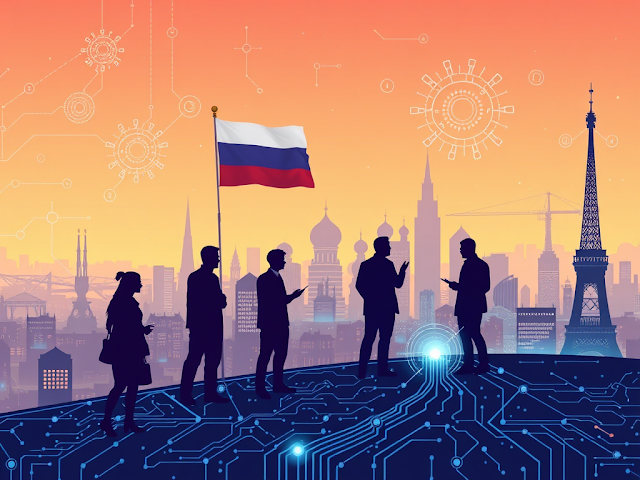The relationship between Russia and the development of artificial intelligence (AI) in the West has become a focal point of discussion, particularly regarding concerns about influence and collaboration. As the global landscape of AI evolves, it's essential to examine the implications of Russia's actions and intentions in this domain.
1. Understanding the Context
The notion of "grooming" implies a strategic effort to influence or manipulate another party for specific gains. In the case of Russia and Western AI, this raises questions about collaboration, espionage, and the sharing of technology and expertise.
2. Russian Investments in AI
Russia has made significant investments in AI research and development, aiming to position itself as a key player in the global AI landscape. Initiatives by the Russian government focus on enhancing domestic capabilities while exploring international partnerships.
- State Support: The Russian government has outlined ambitious plans to develop AI technologies, particularly in military and cybersecurity sectors.
- Talent Development: Russia is investing in education and training programs to cultivate AI talent, potentially leading to collaborations with Western institutions.
3. Concerns About Influence and Espionage
Western nations are increasingly wary of potential Russian influence in the AI sector, particularly regarding data security and intellectual property. Concerns arise from:
- Cybersecurity Threats: Russia has a history of cyber operations that target Western infrastructure and private enterprises, raising fears about the security of AI technologies developed in collaboration with Russian entities.
- Intellectual Property Theft: There are ongoing concerns about the risk of espionage and the theft of proprietary AI research and technologies.
4. Collaborative Efforts in Research
Despite concerns, there have been instances of collaboration between Russian researchers and Western institutions. Scientific exchange can foster innovation, but it also necessitates caution.
- Shared Goals: Collaborative efforts can advance AI research for mutual benefit, but the underlying motivations must be transparent to mitigate risks.
- Ethics in Collaboration: Establishing ethical guidelines for research partnerships is crucial to ensure that collaborative efforts do not compromise national security or ethical standards.
5. The Need for Regulation and Oversight
As the AI landscape continues to evolve, the need for regulation and oversight becomes paramount. Policymakers must consider:
- Setting Boundaries: Establishing clear guidelines for international collaborations in AI can help prevent unintended consequences.
- Promoting Transparency: Encouraging transparency in partnerships can foster trust and ensure that collaborations are conducted ethically and securely.
Conclusion
The question of whether Russia is "grooming" Western AI is complex and multi-faceted. While there are legitimate concerns about influence and espionage, there are also opportunities for collaboration that can drive innovation. The key lies in balancing these aspects through careful regulation, ethical guidelines, and transparent communication. As global competition in AI intensifies, understanding the dynamics between Russia and the West will be critical for shaping a secure and innovative future in artificial intelligence.








